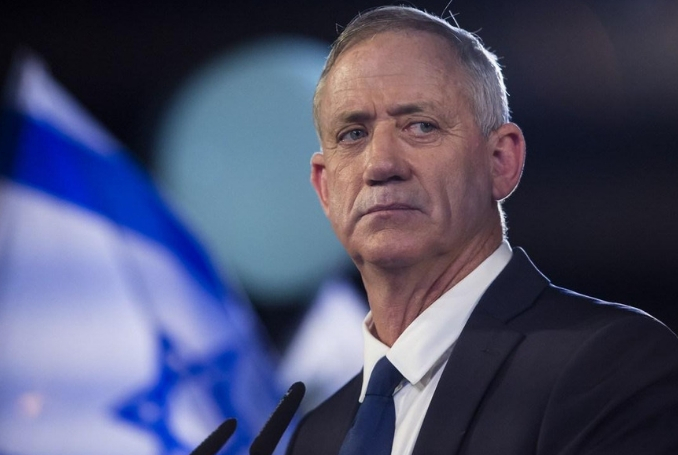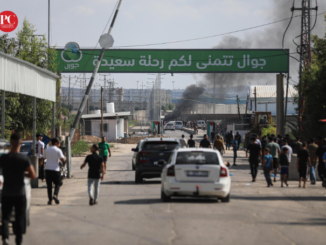
By Ramona Wadi
One outcome is certain when it comes to the forthcoming Israeli elections – Gaza will remain a top target for the new government. Amid the sparring between contenders for the elections, former IDF chief Benny Gantz declared he would implement Israel’s policy of targeted assassinations against Hamas leaders if elected, and if necessary.
His comments sought to counter Education Minister Naftali Bennett’s remarks over “Operation Protective Edge” in 2014, in which the latter used derogatory language to criticize Gantz’s decisions which, according to Bennett, endangered the lives of Israeli soldiers.
Bennett alleged that Gantz would be Hamas’ preferable leadership option. This claim is also being supported by Israeli Prime Minister Benjamin Netanyahu, who has stated that Gantz’s party would make “significant concessions to the Palestinians.”
Both Gantz and Netanyahu have increasingly focused on Gaza in their electoral campaigns, with “Operation Protective Edge” and the Great March of Return providing premises for their arguments. Gantz, who was in charge of the aggression against the enclave, has compared the 2014 aftermath to the ongoing protests and Netanyahu’s response, which was to order snipers positioned at the border to kill and injure Palestinians participating in the demonstration.
Gantz described Netanyahu’s strategy as a “tired policy”. The alternative in such a scenario, according to the former army chief, is to “return to a policy of targeted killings.”
In June 2018, Israel’s Security Minister Gilad Erdan advocated for the targeted assassinations of Hamas leaders and Palestinians launching the “incendiary kites” from Gaza’s border.
A return to targeted killings, however, is not accurate. Israel has a long history of assassinating Palestinian leaders from Hamas and other Palestinian political factions. Only last year, a Palestinian scientist affiliated to Hamas was gunned down in Malaysia, in an operation which raised speculation about Mossad’s role even in Israeli media, although there was no forthright confirmation of the agency’s involvement.
Gantz, therefore, will not be “returning” to a policy of targeted assassinations but embarking upon a continuation of Israel’s policy. Yet, speculation on targeted assassinations alone is just a deviation from the damage which both Netanyahu and Gantz have the power to inflict on the enclave in terms of political and humanitarian related violence.
Following “Operation Protective Edge”, Netanyahu adopted a strategy that prolongs violence for Israel’s benefit. The Great March of Return is one such example. Extrajudicial killings by Israel’s snipers raised international scrutiny which, with time, mellowed down to the usual expressions of concerns regarding what is deemed as routine violence.
Distancing Israel from targeted assassinations in Gaza during this period provided Israel with the opportunity to normalize its ongoing violence on the border.
Gantz is no stranger to strategy. Targeted assassinations cannot be attributed to one single leader but to the existence of the colonial state and its policies of elimination. What Gaza will face under the new Israeli government is more likely to be a continuation of measures which maintains Palestinians’ deprivation in the enclave.
Electoral campaign rhetoric aside, an outright endorsement and implementation of targeted assassinations contradict the intentional ambiguity which Israel has employed against leaders or individuals who have the potential to challenge its existence.
– Ramona Wadi is a staff writer for Middle East Monitor, where this article was originally published. She contributed this article to the Palestine Chronicle.







